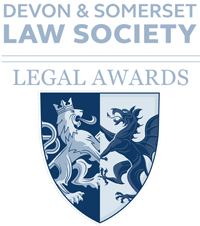Inheritance disputes are on the increase. A variety of social factors such as high property values and second marriages has led to an escalation of contentious probate litigation in recent years.
We have a dedicated team based at our Taunton office which serves the North Devon area. The team deal with a broad range of contentious probate disputes including challenges to invalid Wills and claims under the Inheritance (Provision for Family and Dependants) Act 1975.
We also have our own specialist website, www.contesting-wills.co.uk, which contains a huge amount of helpful information and case studies.
Challenging a Will
There are a number of grounds on which a Will can be challenged. The five most common grounds are as follows:-
- failure to comply with formalities;
- lack of testamentary capacity;
- undue influence;
- lack of knowledge and approval;
- forgery.
Failure to comply with formalities
Section 9 of the Wills Act 1837 sets out the formalities which a Will has to follow if it is to be valid. The requirements are fairly technical and most successful challenges tend to be based on errors made in the execution of the Will. Such errors are particularly prevalent with home made Wills or Wills made by inexperienced and unregulated will writers.
Lack of testamentary capacity
Until the Mental Capacity Act came in, the standard test for testamentary capacity was that set out in the Victorian case of Banks v Goodfellow. In essence, the Banks v Goodfellow test requires the testator to understand:-
- that he is making a Will and that it will have the effect of carrying out his wishes on death;
- the extent of his property and what it consists of; and
- the claims on his estate to which he ought to give effect.
There is a large measure of overlap between the Banks v Goodfellow test and the one introduced by the Mental Capacity Act (MCA). However, there is a difference in emphasis between the two and in particular the MCA places the onus of proof squarely on the person alleging lack of capacity.
For a case to succeed, clear evidence of lack of capacity must be produced. This will often involve expert evidence being obtained from a doctor.
A recurring theme of testamentary capacity claims is the so-called “golden rule”, which specifies that in a case of an aged testator or one who has suffered serious illness the precaution should be taken of having the Will witnessed or approved by a medical practitioner who has satisfied himself of the testator’s capacity and understanding.
Compliance with the golden rule does not guarantee the Will’s validity but it will certainly make a challenge much harder.
Undue influence
Undue influence cannot be presumed in a probate case. The onus is on the person challenging the Will to prove actual undue influence. This means that evidence will have to be produced to establish coercion that goes beyond legitimate persuasion.
The case law suggests that the court will only infer undue influence from the facts if it can be shown that those facts are inconsistent with a contrary hypothesis. In other words, the facts must point squarely at undue influence and there should be no other possible explanation.
Undue influence cases are difficult to prove and it is generally necessary for extensive investigations to be carried out in order to obtain the evidence that will be necessary to satisfy a court.
Lack of knowledge and approval
The principles upon which this claim is based can be summarised as follows:-
- The court must be satisfied that the testator knew and approved of the contents of the Will before it is admitted to probate.
- This will generally be presumed if the Will is properly executed and the testator had testamentary capacity.
- However, where a beneficiary under the Will has been involved in its preparation, the court’s suspicions will be excited and the burden will then lie with the propounder to remove that suspicion.
- Suspicion may be aroused in varying degrees depending upon the circumstances and what is needed to dispel the suspicion will vary accordingly.
Forgery
The most common forgery allegation is that the deceased’s signature to the Will is not genuine. This is a very serious allegation to make and if proved amounts to a criminal act. A forgery allegation should therefore only be made where there is sufficient evidence to support it.
The burden of proof lies with the person alleging forgery. The court will require particularly strong evidence in view of the seriousness of the charge.
It is common to employ the services of a handwriting expert in forgery cases though this is often by no means conclusive.
Claims under the Inheritance (Provision for Family and Dependants) Act 1975
Unlike some other jurisdictions, citizens in England and Wales are free to dispose of their assets as they see fit. However, the law does provide protection for people who are financially dependent on us. This protection comes in the shape of the Inheritance (Provision for Family and Dependants) Act 1975, known simply as the Inheritance Act or the 75 Act.
The Inheritance Act is there to help spouses, children (including step children and children of the family), co-habitees, civil partners and other surviving dependants who have been left to cope without sufficient resources. If a Will fails to make “reasonable financial provision” (or the intestacy rules fail to do so) then the Inheritance Act steps in.
Under the 75 Act the court will take into account the applicant’s needs and resources and consider what would be reasonable for their maintenance. Section 3 of the Inheritance Act sets out a range of factors that have to be taken into account and each case will be decided on its own facts. Claims by spouses (and civil partners) are different to claims by other applicants as the court will look beyond what is necessary purely for maintenance and will take a number of other factors into account, such as:-
- The age of the person making the Inheritance Act claim;
- The duration of the marriage;
- The contribution to the welfare of the family that has been made by the person bringing the Inheritance Act claim;
- The provision that the person bringing the Inheritance Act claim might reasonably have expected to receive if the marriage had been terminated by divorce.
We have a dedicated Inheritance Disputes Team which is based at our Taunton office. The team not only deal with inheritance disputes arising locally in the Devon and Somerset area but also claims from further afield. In fact our Inheritance Dispute practice is now nationwide with clients coming to us from all parts of the country because of our specialist expertise in this field.
We advise both individual claimants wishing to make a claim for financial provision and beneficiaries who want to defend their interests under a disputed Will. We have developed a range of funding options which includes Legal Aid (public funding) in very limited circumstances and No Win-No Fee (CFA).
Inheritance disputes can be divisive and unpleasant for everyone involved. We therefore support all forms of Alternative Dispute Resolution (ADR) such as Mediation and Early Neutral Evaluation. ADR can help minimise conflict within a family and enable disputes to be resolved without family relationships breaking down irretrievably.
For anyone considering a claim under the Inheritance Act, it is essential that they seek specialist advice at the earliest opportunity. Remember, Inheritance Act claims must be brought within six months of the Grant of Representation. If six months have already elapsed, we may still be able to help, as long as you act quickly.

